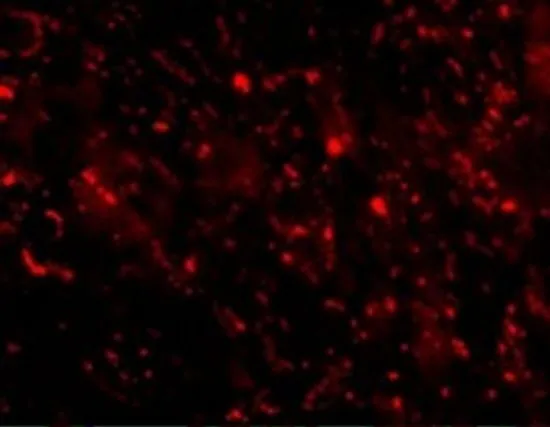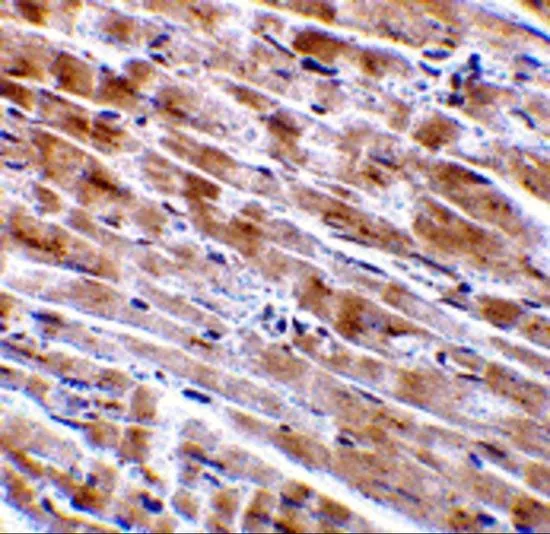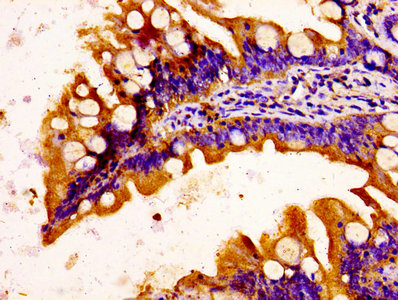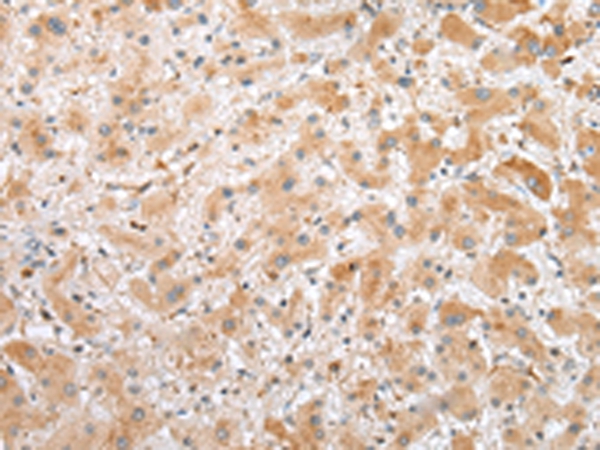
IHC-P analysis of mouse heart tissue using GTX85505 CTRP3 antibody. Working concentration : 10 μg/ml
CTRP3 antibody
GTX85505
ApplicationsWestern Blot, ELISA, ImmunoHistoChemistry, ImmunoHistoChemistry Paraffin
Product group Antibodies
ReactivityHuman, Mouse
TargetC1QTNF3
Overview
- SupplierGeneTex
- Product NameCTRP3 antibody
- Delivery Days Customer9
- Application Supplier NoteWB: 1 microg/mL. IHC-P: 2 microg/mL. *Optimal dilutions/concentrations should be determined by the researcher.Not tested in other applications.
- ApplicationsWestern Blot, ELISA, ImmunoHistoChemistry, ImmunoHistoChemistry Paraffin
- CertificationResearch Use Only
- ClonalityPolyclonal
- Concentration1 mg/ml
- ConjugateUnconjugated
- Gene ID114899
- Target nameC1QTNF3
- Target descriptionC1q and TNF related 3
- Target synonymsC1ATNF3, CORCS, CORS, CORS-26, CORS26, CTRP3, complement C1q tumor necrosis factor-related protein 3, C1q and tumor necrosis factor related protein 3, cartonectin, collagenous repeat-containing sequence 26 kDa protein, collagenous repeat-containing sequence of 26-kDa, secretory protein CORS26
- HostRabbit
- IsotypeIgG
- Protein IDQ9BXJ4
- Protein NameComplement C1q tumor necrosis factor-related protein 3
- Scientific DescriptionAdipose tissue of an organism plays a major role in regulating physiologic and pathologic processes such as metabolism and immunity by producing and secreting a variety of bioactive molecules termed adipokines (reviewed in 1). One highly conserved family of adipokines is adiponectin/ACRP30 and its structural and functional paralogs, the C1q/tumor necrosis factor-?-related proteins (CTRPs) 1-7 (2). Unlike adiponectin, which is expressed exclusively by differentiated adipocytes, the CTRPs are expressed in a wide variety of tissues (3). An analysis of the crystal structure of adiponectin revealed a structural and evolutionary link between TNF and C1q-containing proteins, suggesting that these proteins arose from a common ancestral innate immunity gene (4). Multiple isoforms of human CTRP3 have been reported. It has been suggested that CTRP3 may play a role in skeletal development (5).
- ReactivityHuman, Mouse
- Storage Instruction-20°C or -80°C,2°C to 8°C
- UNSPSC41116161






